
Ingredient
Pearl oyster mushrooms
The Delicate Delight of Pearl Oyster Mushrooms
Pearl oyster mushrooms are small to medium-sized mushrooms with a distinct fan-shaped cap and a pale, creamy color. They have a tender and velvety texture, making them a popular choice for sautéing, stir-frying, or grilling. These mushrooms have a mild and slightly nutty flavor that pairs well with a wide range of ingredients, making them a versatile addition to both vegetarian and meat-based dishes.
Origins and history
Pearl oyster mushrooms have a long history of culinary use and have been enjoyed in various cuisines around the world. They are believed to have originated in Asia, particularly in China and Japan, where they have been cultivated for centuries. These mushrooms were highly valued for their delicate flavor and unique texture. Today, pearl oyster mushrooms are widely cultivated and consumed globally.
Nutritional information
Pearl oyster mushrooms are low in calories and fat, making them a healthy addition to meals. They are also a good source of protein, fiber, and essential minerals such as potassium and selenium.
Allergens
Individuals with mushroom allergies should avoid consuming pearl oyster mushrooms.
How to select
When selecting pearl oyster mushrooms, look for firm and plump caps with a creamy color. Avoid mushrooms that appear slimy, discolored, or have a strong odor. Freshness is key, so choose mushrooms that have a clean and fresh aroma. Additionally, opt for organically grown mushrooms whenever possible to ensure the absence of pesticides or chemicals.
Storage recommendations
To maintain the freshness and quality of pearl oyster mushrooms, store them in a paper bag or a loosely closed container in the refrigerator. Avoid washing the mushrooms until ready to use, as excess moisture can cause them to deteriorate quickly. Proper storage can help extend their shelf life for up to a week.
How to produce
Pearl oyster mushrooms can be grown at home using mushroom-growing kits or by cultivating them on a substrate made from materials such as straw or sawdust. The process involves creating a suitable environment with controlled temperature, humidity, and light conditions. Detailed instructions and kits are available for amateur growers interested in producing their own pearl oyster mushrooms.
Preparation tips
Pearl oyster mushrooms can be prepared in various ways, including sautéing, stir-frying, grilling, or roasting. They can be used as a meat substitute in vegetarian dishes or added to soups, stews, pasta dishes, and risottos for added flavor and texture. These mushrooms also pair well with herbs, garlic, butter, and soy sauce, allowing for endless culinary possibilities.
Substitutions
Button mushrooms or cremini mushrooms can be used as substitutes for pearl oyster mushrooms. While they may not have the exact same flavor and texture, they can provide a similar earthy taste and delicate texture to dishes.
Culinary uses
Pearl oyster mushrooms are commonly used in Asian cuisines, particularly in Chinese and Japanese dishes. They are often stir-fried with vegetables, added to soups, or used in hot pot preparations. These mushrooms are also popular in European cuisines, where they are used in pasta dishes, risottos, and as a topping for pizzas.
Availability
Pearl oyster mushrooms are cultivated and consumed in various regions around the world. They are commonly found in Asian countries such as China, Japan, and Korea. Additionally, they are grown and enjoyed in European countries like France, Italy, and the United Kingdom. Pearl oyster mushrooms are also available in North America, particularly in the United States and Canada.
More ingredients from this category
Recipes using Pearl oyster mushrooms » Browse all
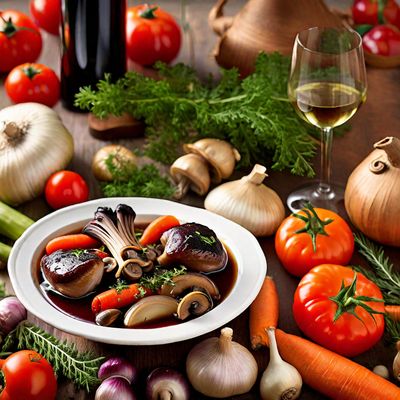
Vegetarian Coq au Vin
Savory Mushroom Stew: Vegetarian Coq au Vin

Chinese-style Mushroom Risotto
Umami-infused Mushroom Risotto with a Chinese Twist
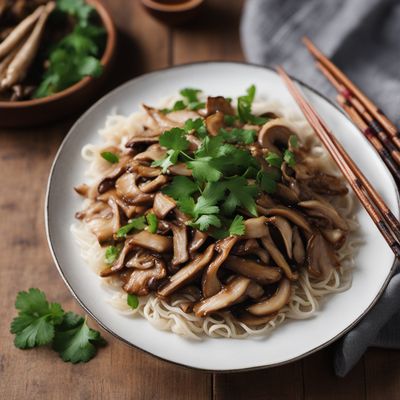
Imperial Chicken and Mushroom Stir-Fry
Regal Delight: Imperial Chicken and Mushroom Stir-Fry

Eggs Benedict with a French Twist
Oeufs Bénédicte à la Française
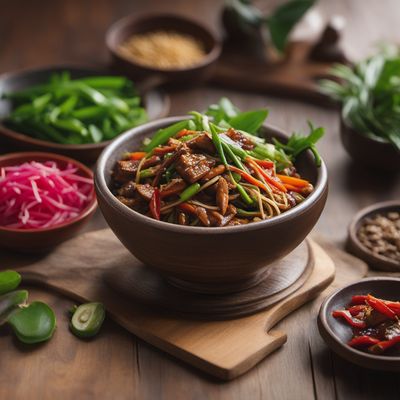
Buddha's Delight
Enlightening Harmony: A Vegetarian Delight
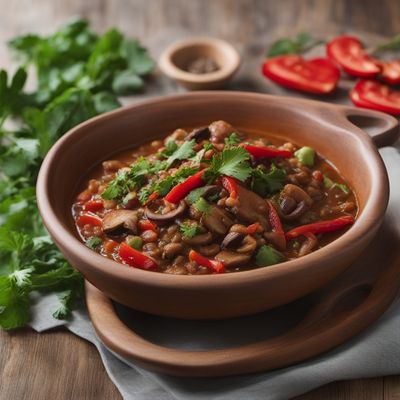
Vegan Brazilian-inspired Squid Feijoada
Oceanic Delight: Vegan Feijoada with a Seafood Twist

Vegan Hot Pot
Plant-Powered Hot Pot: A Vegan Twist on a Chinese Classic

Vegan Cheesesteak
Philly's Finest Vegan Cheesesteak

Luxembourgian Mushroom Salad
Savory Delights: Luxembourgian Mushroom Salad
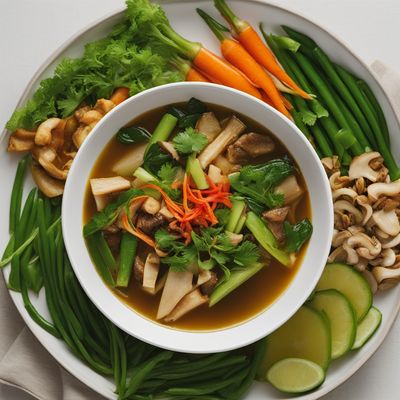
Sundanese Style Vegetable Nabemono
Sundanese Delight: A Flavorful Twist on Vegetable Nabemono
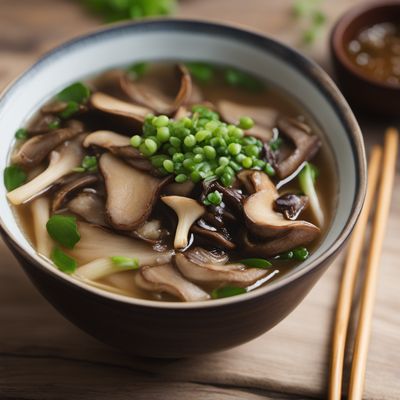
Kenoshiru - Japanese Mushroom Soup
Umami Delight: Savory Japanese Mushroom Soup

Konoha-don: Forest-Inspired Rice Bowl
Sakura Blossom Rice Bowl: A Taste of the Japanese Forest
